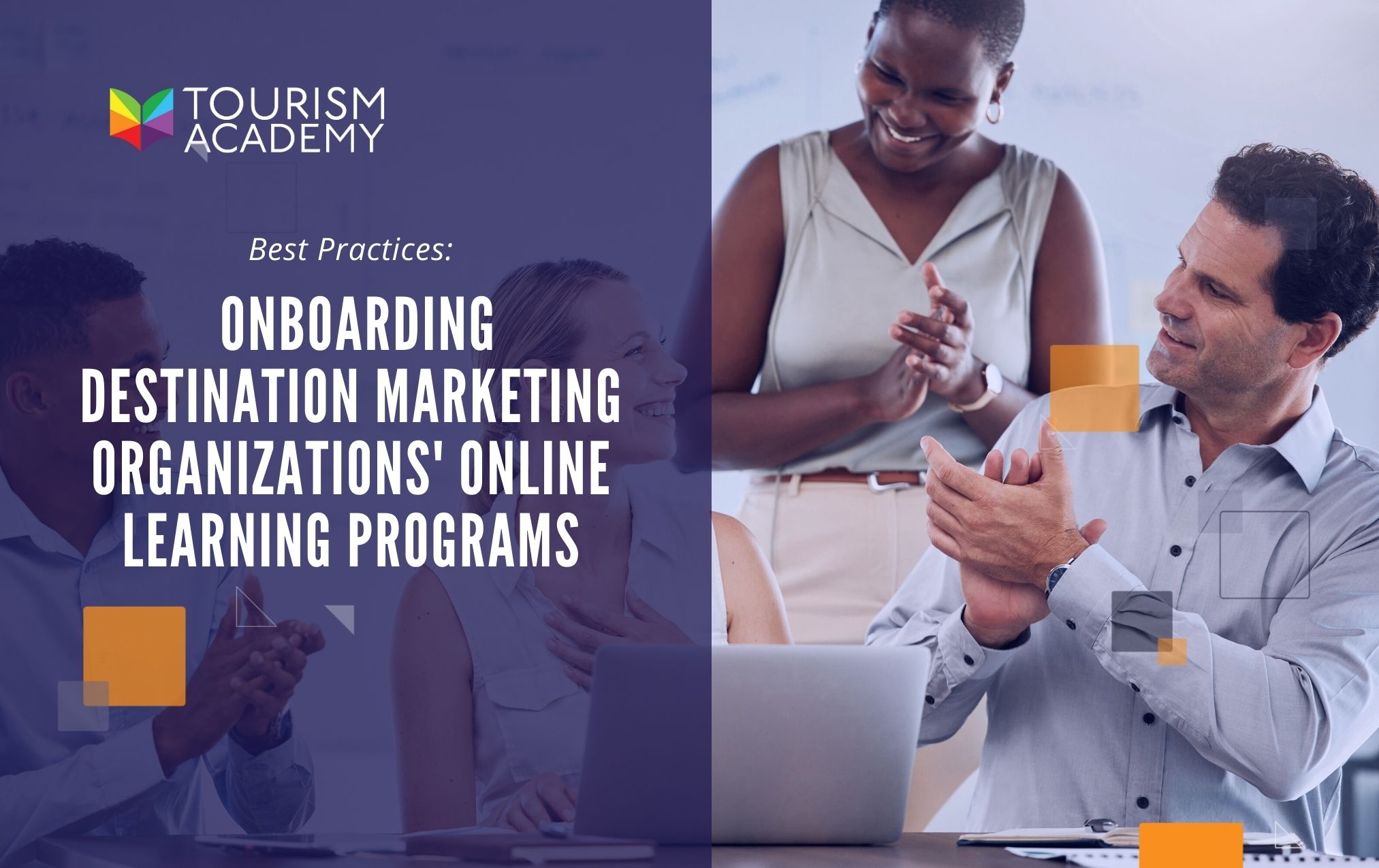
Best Practices in Onboarding Destination Marketing Organizations' Online Learning Programs
Destination marketing organizations (DMOs) play a crucial role in educating and engaging stakeholders within the tourism industry. Online learning programs have become a valuable tool for DMOs to achieve this. In this article, we will explore the best practices for onboarding DMOs' online learning programs, drawing from the experience and expertise of the Tourism Academy, a nonprofit organization dedicated to advancing the tourism industry. These insights provide valuable guidance for DMOs looking to enhance their online courses and programs.
-
User-Centric Design:
- The user experience should be a top priority. DMOs should ensure that their online learning platforms are easy to navigate, visually appealing, and user-friendly. Intuitive design and clear navigation menus can make a significant difference in keeping stakeholders engaged. Read: Education With Empathy
-
Content Relevance and Quality:
- DMOs should focus on delivering high-quality and relevant content. The materials and courses should address their stakeholders' specific needs and interests. Regularly update content to keep it current and engaging.
-
Interactive Learning:
- Incorporating interactive elements like quizzes, discussion forums, and multimedia resources can make the learning experience more engaging and effective. DMOs should encourage active participation from stakeholders.
Read: Online Learning Technology
- Incorporating interactive elements like quizzes, discussion forums, and multimedia resources can make the learning experience more engaging and effective. DMOs should encourage active participation from stakeholders.
-
Clear Communication Channels:
- Establish transparent communication channels for stakeholders to seek assistance or provide feedback. This can include forums, chat support, or dedicated email addresses. Quick and helpful responses build trust and satisfaction.
-
Personalized Learning Paths:
- Allow stakeholders to choose their learning paths based on their interests and needs. Providing a variety of courses and modules allows for a tailored learning experience, which can enhance engagement and satisfaction.
-
Gamification and Incentives:
- Gamification elements, such as badges, certificates, or even small rewards, can motivate stakeholders to complete courses. Recognizing their achievements can boost participation and completion rates.
-
Analytics and Feedback Loops:
- Implement analytics tools to track the progress and engagement of stakeholders. Gather feedback and use it to improve the online learning experience continuously.
-
Scalability and Accessibility:
- Ensure that the online learning platform can scale to accommodate a growing number of stakeholders. Additionally, ensure the platform is accessible to all, including those with disabilities.
-
Consistent Branding:
- Maintain consistent branding throughout the online learning programs to reinforce the DMO's identity and message.
-
Regular Updates and Adaptations:
- The tourism industry is dynamic, and DMOs should be ready to adapt their online learning programs to reflect changing trends and needs.
By applying these best practices, destination marketing organizations can create compelling, engaging, and valuable online learning programs that benefit their stakeholders and contribute to the growth and sustainability of the tourism industry.

Leave a comment